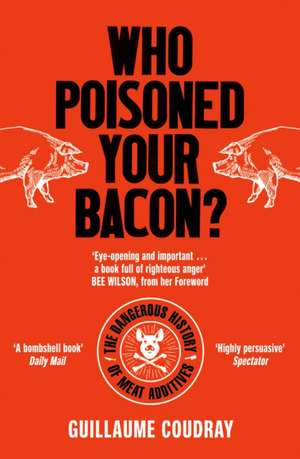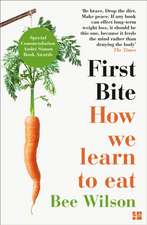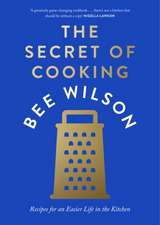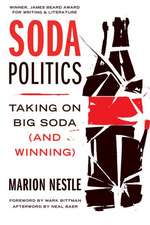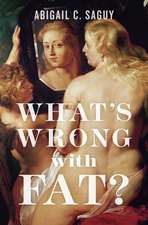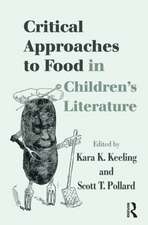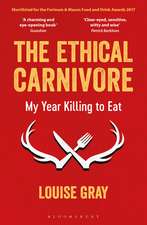Who Poisoned Your Bacon?: The Dangerous History of Meat Additives
Autor Guillaume Coudray Cuvânt înainte de Bee Wilsonen Limba Engleză Paperback – 5 ian 2022
'A bombshell book'Daily Mail
'Eye-opening and important . . . a book full of righteous anger' Bee Wilson, from her Foreword
Did you know that bacon, ham, hot dogs and salami are classified by the World Health Organization (WHO) as ‘category 1 carcinogens’?
Would you eat them if you knew they caused bowel cancer?
Following ten years of detailed investigation, documentary film-maker Guillaume Coudray presents a powerful examination of the use of nitro-additives in meat. As he reveals, most mass-produced processed meats, and now even many ‘artisanal’ products, contain chemicals that react with meat to form cancer-causing compounds. He tells the full story of how, since the 1970s, the meat-processing industry has denied the health risks because these additives make curing cheaper and quicker, extending shelf life and giving meat a pleasing pink colour.
These additives are, in fact, unnecessary. Parma ham has not contained them for nearly 30 years – and indeed all traditional cured meats were once produced without nitrate and nitrite. Progressive producers are now increasingly following that example.
Who Poisoned Your Bacon?– featuring a foreword by acclaimed food writer Bee Wilson – is the authoritative, gripping and scandalous story of big business flying in the face of scientific health warnings. It allows you to evaluate the risks, and carries a message of hope that things can change.
Preț: 70.46 lei
Nou
13.48€ • 14.03$ • 11.13£
Carte disponibilă
Livrare economică 25 martie-08 aprilie
Livrare express 08-14 martie pentru 22.13 lei
Specificații
ISBN-10: 1785787861
Pagini: 400
Dimensiuni: 129 x 198 x 22 mm
Greutate: 0.3 kg
Editura: Icon Books Ltd
Colecția Icon Books Ltd
Locul publicării:London, United Kingdom
Notă biografică
Guillaume Coudray is a French director and producer of documentary films. A political scientist by training, he is a graduate of Sciences Po and a former research grantee at the National Foundation for Political Science. His decade-long investigation into meat-processing has led to widespread press coverage and a hard-hitting film documentary broadcast in more than fifteen countries, which has had a major impact on the meat-processing industry. He lives in Paris. Follow him on twitter at @g_coudray
Recenzii
'A bombshell book'
‘Highly persuasive … a well-organised and solid dossier that alerts us to legalised chemical trickery.’
Descriere
‘Highly persuasive … a well-organised and solid dossier that alerts us to legalised chemical trickery.’Joanna Blythman, The Spectator
'A bombshell book' Daily Mail
'Eye-opening and important . . . a book full of righteous anger' Bee Wilson, from her Foreword
Did you know that bacon, ham, hot dogs and salami are classified by the World Health Organization (WHO) as ‘category 1 carcinogens’?
Would you eat them if you knew they caused bowel cancer?
Following ten years of detailed investigation, documentary film-maker Guillaume Coudray presents a powerful examination of the use of nitro-additives in meat. As he reveals, most mass-produced processed meats, and now even many ‘artisanal’ products, contain chemicals that react with meat to form cancer-causing compounds. He tells the full story of how, since the 1970s, the meat-processing industry has denied the health risks because these additives make curing cheaper and quicker, extending shelf life and giving meat a pleasing pink colour.
These additives are, in fact, unnecessary. Parma ham has not contained them for nearly 30 years – and indeed all traditional cured meats were once produced without nitrate and nitrite. Progressive producers are now increasingly following that example.
Who Poisoned Your Bacon? – featuring a foreword by acclaimed food writer Bee Wilson – is the authoritative, gripping and scandalous story of big business flying in the face of scientific health warnings. It allows you to evaluate the risks, and carries a message of hope that things can change.
